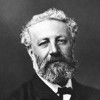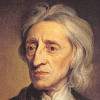“ Since a man can never have so certain a knowledge, that a proposition which contradicts the clear principles and evidence of his own knowledge was divinely revealed, or that he understands the words rightly wherein it is delivered, as he has that the contrary is true, and so is bound to consider and judge of it as a matter of reason, and not swallow it, without examination, as a matter of faith. ”
John Locke, An Essay Concerning Human Understanding (1689). copy citation
| Author | John Locke |
|---|---|
| Source | An Essay Concerning Human Understanding |
| Topic | understanding faith |
| Date | 1689 |
| Language | English |
| Reference | |
| Note | |
| Weblink | http://www.gutenberg.org/cache/epub/10616/pg10616-images.html |
Context
“Indeed, if anything shall be thought revelation which is contrary to the plain principles of reason, and the evident knowledge the mind has of its own clear and distinct ideas; there reason must be hearkened to, as to a matter within its province. Since a man can never have so certain a knowledge, that a proposition which contradicts the clear principles and evidence of his own knowledge was divinely revealed, or that he understands the words rightly wherein it is delivered, as he has that the contrary is true, and so is bound to consider and judge of it as a matter of reason, and not swallow it, without examination, as a matter of faith.
9. Revelation in Matters where Reason cannot judge, or but probably, ought to be hearkened to.
First, Whatever proposition is revealed, of whose truth our mind, by its natural faculties and notions, cannot judge, that is purely matter of faith, and above reason.”
source



